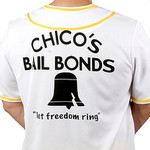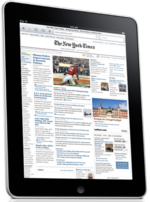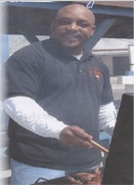The Carnival of HR - Super Bowl Edition
Welcome to the latest edition of the Carnival of HR! 
I struggled to think of a new and interesting angle for the Carnival, one that has not been used before, and one that would make sense as a unifying theme that would resonate with the writers and their contributions.
After about 15 minutes, I decided that was going to be too difficult and decided on a sports gimmick.
So without further delay, and in the spirit of the American Football Super Bowl that is set to be contested in a few days, here is the Carnival of HR - Super Bowl Edition.
Off-season
Many teams decide to make coaching changes in the off-season. Likewise, individuals and leaders may decide they need some professional coaching. At Wally Bock's Three Star Leadership, Wally explores the question in 'Leadership Development: When to Hire a Coach'.
In the off-season each team drafts a new set of young players that have to be assimilated into the team. Coaching these new, young players can be a challenge for some 'old-school' coaches. Mary Jo Asmus explores some similar territory in 'What Does Gen Y Want from Thier Leaders?'
A big problem in the off season for players is staying in shape. Without the coaches around to make sure they keep training it becomes a question of motivation. The motivation expert Paul Hebert offers us 'The 5 Immutable Laws of Motivation' on the Incentive Intelligence blog.
Training Camp
The best teams have a blend of stars and supporting players that fill important roles. Finding the right blend of talent is a challenge that many organizations will face in 2010 as seen in this piece, 'Optimizing Talent in the New Workforce', by Sharlyn Lauby at the HR Bartender.
Training camp is also a time of learning and reinforcing the right behavior. But most football coaches are pretty reluctant to dish out the praise. And that may not be a bad thing as we see in this piece 'What Teacher's Make' from Laura Schroeder at Working Girl.
Some coaches hold fast to their 'systems', while others adapt to the talent around them. Guatam Ghosh suggests that organizations do more of the latter with 'Recruit for a Cause, Not a Role' on his blog Gautam on Organizations 2.0.
You have to prepare to be able to get to the big game, much less win it. Shortcuts and excuses won't cut it. In organizations, the will to prepare to win is also important. On the Training Time blog, Lindsay Richardson offers this advice in 'Getting Training Out of the Box'.
Pre-Game Hype
Part of the pre-game activities is of course game planning. The HR Maven shares some of her plans for ongoing personal and professional development in 'Reclaim your brain'.
You can't even qualify for the game unless you have the right collection of players. And that means cultivating talent from the first day they come on board. Jennifer McClure at Cincy Recruiter's World share a few stories of how not to get employees started with 'Wanted: A Positive Onboarding Experience'.
A big part of the incessant pre-game hype is excessive analysis on statistics of every stripe. But sometimes these metrics border on the ridiculous, as described by Mick Collins in 'We're Going to Turn This Team Around 360 Degrees' at the Inforhm blog.
The pre-game show usually takes a look back on some relevant Super Bowl games from history. In this post from the Human Race Horses blog Mike VanDervort takes a look back as well - ' Life Lessons from 25 Years in HR' .
Trash Talk
Players sometimes engage in some pre-game trash talk, sometimes it can backfire on the team. Employees are talking too, and we see in G. Neil's HR Forum that 'Ouch! Survey Reveals that Nearly one out of every two employees is unhappy at work'.
There is sometimes an element of truth in good natured trash talk. This post is full of the truth, a very real and personal post from Paul Smith at Welcome to the Occupation, 'Being Gay at Work: When I Think About It'.
Game Planning
Coaches spend long hours drawing up plays and strategizing for big game. Benjamin McCall at ReThinkHR advises you to strategize as well with 'Personal Brand: What's on Your Chalkboard?'
A big part of a successful game plan is devising a strategy that plays to the team's strengths. If you are a running team, then you concentrate on exploiting that. Dan McCarthy at Great Leadership suggests a similar focus as well in 'The One Thing Approach to Leadership Development'.
A smart game plan calls for some brand new plays that your opponent won't be ready for to hopefully give you the element of surprise. Shauna Moerke, the HR Minion advises you to mix up your routines as well in 'Groundhog Day'.
Certainly a large part of game planning involves video study. In this guest post on the Corn on the Job blog, Bill Boorman breaks down dealing with recruiters on a video post - 'My Cousin Interviews with Bill Boorman'.
Pre-Game Show
During the 5 hour or so pre-game show, lots of time is spent analyzing the strategies of each team. At HR Ringleader, Trish McFarlane explores some strategies for the HR function, namely 'Four Ways HR Can Operate More Like a Profit Center'.
Coin Toss
At the coin toss the referee goes over a few of the basic rules of the game. Over at Talented Apps, Meg Bear is talking about rules, specifically 'When the Golden Rule Doesn't Work'.
The coin toss is simple, heads or tails. And so is doing the right thing by your applicants as so well put by Kari Quaas at the Cool Works blog with 'Respond to Your Applicants'.
Prop Bets
Would you bet on the team that consistently plays to its strengths? Mike Haberman at HR Observations thinks you should with 'Human Resources Should Be About Improving What Works'.
Making bets on the game certainly introduces some risk. Susan Burns at Talent Synchronicity asks you to consider your risk tolerance in the Talent Acquisition game with 'Is Risk Avoidance Adding More Risk to your Company's Talent Strategy?'
Commercials
Good Super Bowl commercials are often better than the game itself, and can be more that just a diversion from the action. Social media and networking often show much more value than many people expect, as is well-articulated by Naomi Bloom at In Full Bloom with 'Reflections of a Digital Immigrant Gone Semi-Native'.
Half Time
Half time is the time for aging rock stars and inspirational speeches from the coach. But unless the head coach has a stock of credibility built up, no way the team is buying in. Lisa Rosendahl at Simply Lisa wants to know - 'Have You Checked Your Credibility Lately?'
The best strategists make changes to the game plan at half time to counter what their opponent shown. Change is also a constant in organizations as seen in 'Change, Change, Change... Change is Brewing' from Cathy Martin at the Profitability Though Human Capital blog.
Streakers on the field
If we are lucky, sometime in the third quarter a streaker or someone dressed in a super hero costume will make a mad dash across the field. In case that happens, you can prepare by checking out Ben Eubank's take on Comic Book Leadership at UpstartHR.
Fourth Quarter
Winning the game in the 4th quarter requires guts, endurance, and a commitment to team play and player development. At the Devon Blog, Melissa Prusher describes one corporate leader's experience with mentoring in 'How a Passion for Produce Influences One Man's Leadership Skills'.
Fantastic Finish
Closing the deal, and winning the trophy could depend on how well the team has stuck to it's game plan, played smart, and caught a break or two. Lois Melbourne at the Aquire blog explains how sticking to their plans helps them make the right hiring decisions in '9 Box Increases Hiring Successes'.
Disneyland
The winning team celebrates for a time, makes a trip to Disneyland, and almost immediately has to plan to the next season. For organizations, planning never stops as we see in this post from Mark Vickers at the i4CP blog, 'Ten Critical Performance Issues for 2010'.
Off season
Yes, we are back to where we started. The Super Bowl is over, football season done. Guys, now it's time to re-introduce yourself to your families. Take a break from sports for a while. At the Inflexion Point blog, Mark Stelzner advises us to take a similar break from social media with 'Social Media Detox'.
Well that is it for this edition of the Carnival of HR!
One last question - Saints or Colts this Sunday?

 Steve
Steve




